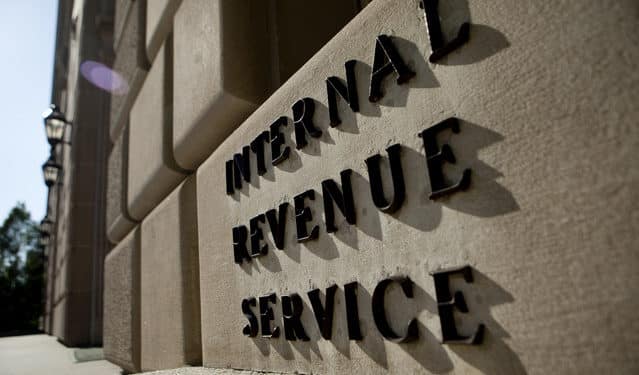A guest post from Dean Zerbe, senior policy analyst for the National Whistleblower Center and former tax counsel for the Senate Finance Committee.
Tax whistleblowers had good news the other day with the Taxpayer First Act of 2019 (Public Law 116-25) being signed into law – including anti-retaliation protections for tax whistleblowers as well as requiring improved communication between the IRS and whistleblowers. Thanks to the Chairman of the Senate Finance Committee Charles Grassley (R-IA)(my old boss) and Ranking Member Wyden (D-OR) as well as Ways and Means Subcommittee Chairman Lewis (D-GA) and Ranking Member (R-PA) for making this all happen. Happy day!
Anti-Retaliation Protections For Tax Whistleblowers

Prior to the change in law, there were no federal anti-relation protections for tax whistleblowers (although the IRS is quite good at protecting the identity of whistleblowers – and there is no requirement that the whistleblowers name be publicly revealed). Now, thanks to the new law (26 USC 7623(d), tax whistleblowers will benefit from significant protections – modeled after the protections whistleblowers have under the False Claims Act.
The anti-retaliation proposals protect tax whistleblowers who blow the whistle to the IRS and also whistleblowers who provide information about underpayment of tax or other violations of the tax laws to their supervisor or other responsible persons in the company who can investigate/take action on the matter. KEY – the whistleblower must file a complaint with the Secretary of Labor within 180 days after the date of which the violation occurs (if the Secretary doesn’t issue a decision within 180 days – an action may be brought in the appropriate district court.
The new law provides significant remedies to tax whistleblowers who have been subject to retaliation – including compensatory damages of reinstatement, 200 percent of back pay and all lost benefits, with interest and compensation for other special damages including litigation costs and reasonable attorney fees. Credit to NWC’s Steve Kohn for his good oar-pulling on this provision.
Improved Communication With Tax Whistleblowers
A grind for tax whistleblowers has been the reality that tax cases can take often years to resolve – and at the same time the whistleblower often receives little to no communication from the IRS about the status of her claim. With the new law, 26 USC 6103(k)(13), Congress has directed the IRS to open the door and let in (some) light to the whistleblower about the status of the claim.
Particularly, the IRS is to inform the whistleblower whether the information the whistleblower has been referred to audit and whether there has been a payment by the taxpayer on the issue raised by the whistleblower. In general, the IRS is to provide the whistleblower a status of the investigation and related information in response to written request from the whistleblower.The new law also allows for improved communication with the whistleblower to assist the IRS in an investigation (something that IRS Criminal Investigation is quite good at – civil is still getting there). This window into the status of a whistleblower claim will be of good help for giving whistleblowers peace of mind.
IRS Welcome Mat Out For Knowledgeable Tax Whistleblowers With Specific Information
All this good news for tax whistleblowers comes on the heels of the IRS providing a record $312 million dollars in awards last year to whistleblowers. The IRS is certainly interested in hearing from knowledgeable whistleblowers (particularly insiders) about big dollar tax underpayments that are recent (last 3 – 6 years). In a recent interview I had with Lee Martin – the Director of the IRS whistleblower office – he emphasized to me that it is critical that whistleblowers come in with specific information about tax evasion (names of taxpayers involved; documents are a big help; details on the underpayment of tax, etc.). I find in my own work representing tax whistleblowers such as Brad Birkenfeld and others that that is exactly right – whistleblowers who get awards are the ones that have the goods.
All in all – with the new law — a good day for tax whistleblowers and honest taxpayers. A bad day for big-time tax cheats.
What’s Next?
These important reforms were part of a package that had been in the works for well over a year so it was impossible to add additional changes – but the NWC is hard at work pushing for Congress to clarify that the standard of review for tax whistleblower cases in Tax Court is – de novo – not abuse of discretion (arbitrary and capricious). It all sounds like boring legalese – but an important reform that will ensure whistleblowers rights are protected and not subject to the whims of the IRS. Also, the NWC is looking to have interest run if a whistleblower doesn’t receive a payment within 12 months of dollars being collected by the IRS.Too often whistleblowers can wait and wait and wait for the IRS to issue an award – having interest running will put some focus on the IRS making awards in a timely manner.


